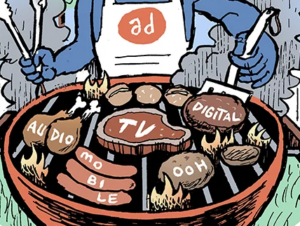Prebid hired Mike Racic as the industry group’s first president.
Although Prebid maintains a small group of full-time engineers and operations staff to manage its open-source header-bidding and identity solutions, Racic is its first full-time executive hire.
The leadership role was previously filled by members of the Prebid board on a part-time basis.
But Prebid’s growing membership numbers and the expanded scope of projects taken on by its committees necessitated hiring a leader who could focus full time on running Prebid as a company, Racic said.
Racic was previously global head of programmatic and data at Fandom, and his background spans roles at agencies and ad tech firms as well as on the publishing end. That range of experience appealed to Prebid, which wants to articulate the benefits of its open-source header-bidding solutions to all members of the advertising supply chain.
Focus on identity
Identity solutions will continue to be an area of focus for Prebid going forward.
Prebid launched its SharedID solution last year to allow publishers to integrate myriad ID solutions into Prebid’s header-bidding stack. The SharedID identifier can then be used for focused ad targeting and personalization, revenue ops and building audience cohorts and segments, among other use cases.
Prebid also recently took over management of UID 2.0’s hardware and software infrastructure from The Trade Desk, with plans for UID 2.0 to go live by the midpoint of 2022.
One Prebid committee is dedicated to attaching first-party data to open exchange buying. Standardizing first-party data practices is another area of focus. Everyone has a different definition of first-party data, “like going to a car dealership and everyone’s got their version of blue,” Racic said.
With most publishers still in the experimentation phase with identity solutions, Prebid is focused on facilitating testing and deriving best practices from what its members learn about how these solutions work, Racic said.
As identity solutions roll out rapidly over the next year, Prebid’s mission is to find a few of these identity solutions, make them uniform, enhance them and allow the entire ecosystem to take advantage of them, he said.
“The important thing is to be able to take advantage of these solutions rapidly and not make it something that becomes all-consuming for a publisher’s engineering team,” Racic said.
And Prebid is committed to addressing concerns related to Apple and Google discontinuing the use of device IDs.
“Consumer privacy is going to continue to be a hot-button topic, and there will continue to be restrictions on how consumer data can be used. Our mission is to work with our members to figure out the best way to allow them to continue to transact and make money programmatically,” Racic said.
Prebid will also be expanding into other areas of the ad tech ecosystem that it had not been focused on previously, including podcasting and audio and connected TV measurement and analytics, Racic said.
Membership push
Prebid wants more industry players to join Prebid and participate in the process, and it plans to increase its outreach to publishers under Racic’s leadership.
“Over the next 90 days, we’ll be rolling out a strategy for publishers that makes them understand the tangible benefits of participating in the community,” Racic said. Instead of publishers just waiting for the next Prebid release, Prebid wants them to participate in that process.
The organization has found that involvement in Prebid’s committees is a key factor to bringing in more members in the short term. And getting the right industry players at the table will make Prebid more effective at executing its long-term plans, Racic said.
Plus, participation is free. Members in Prebid’s free tier have access to Prebid’s header-bidding solutions and Slack channels and events. Publishers, agencies and brands can pay a $6,000 annual fee for the privilege of participating in Prebid’s board of director elections. And a $50,000 membership fee nets a company a seat on the board.
There are no immediate plans to alter the membership structure, Racic said, although that decision would ultimately be up to the voting members.














